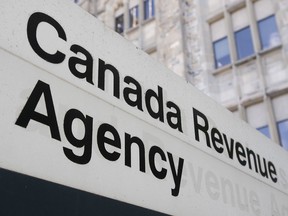Companies caught in digital services tax crossfire as CRA won't issue refunds

Companies caught in digital services tax crossfire as CRA won't issue refunds

Article content
The Canadian government has been introducing tax policy by press release for far too long. Sometimes it’s inevitable in order to restore fairness to the system or to curb perceived abuses.
THIS CONTENT IS RESERVED FOR SUBSCRIBERS ONLY
Subscribe now to read the latest news in your city and across Canada.
- Exclusive articles from Barbara Shecter, Joe O'Connor, Gabriel Friedman, and others.
- Daily content from Financial Times, the world's leading global business publication.
- Unlimited online access to read articles from Financial Post, National Post and 15 news sites across Canada with one account.
- National Post ePaper, an electronic replica of the print edition to view on any device, share and comment on.
- Daily puzzles, including the New York Times Crossword.
SUBSCRIBE TO UNLOCK MORE ARTICLES
Subscribe now to read the latest news in your city and across Canada.
- Exclusive articles from Barbara Shecter, Joe O'Connor, Gabriel Friedman and others.
- Daily content from Financial Times, the world's leading global business publication.
- Unlimited online access to read articles from Financial Post, National Post and 15 news sites across Canada with one account.
- National Post ePaper, an electronic replica of the print edition to view on any device, share and comment on.
- Daily puzzles, including the New York Times Crossword.
REGISTER / SIGN IN TO UNLOCK MORE ARTICLES
Create an account or sign in to continue with your reading experience.
- Access articles from across Canada with one account.
- Share your thoughts and join the conversation in the comments.
- Enjoy additional articles per month.
- Get email updates from your favourite authors.
THIS ARTICLE IS FREE TO READ REGISTER TO UNLOCK.
Create an account or sign in to continue with your reading experience.
- Access articles from across Canada with one account
- Share your thoughts and join the conversation in the comments
- Enjoy additional articles per month
- Get email updates from your favourite authors
Sign In or Create an Account
or
Article content
Lately, however, these press releases have been the tool du jour.
Article content
Article content
For example, during COVID-19, tax practitioners were often glued to their screens waiting for the next press release affecting the steady stream of tax measures and extensions. An extension to the filing deadline for the 2022 Underused Housing Tax Returns was made by press release. The same for bare trusts in 2023.
Article content
Article content
Then came the capital gains inclusion rate proposals in the 2024 federal budget. Fraught with problems from the start, the proposals were first “deferred” until Jan. 1, 2026, by a Department of Finance press release on Jan. 31, 2025, and then apparently killed by Prime Minister Mark Carney through an unusual press release through the PM’s website.
Article content
By signing up you consent to receive the above newsletter from Postmedia Network Inc.
Article content
Now, the digital services tax (DST) was rescinded by a press release on Sunday. The DST applies to certain large corporations and was passed into law in June 2024, retroactive to 2022.
Article content
The first collections of such tax were required to be made by affected corporations on June 30, 2025. Carney, when questioned about the timing of the announcement, said it “did not make sense to collect a tax and then remit the revenue back.” In other words, if you’re going to repeal it, then do so before it requires payments to be made by taxpayers.
Article content
But what if affected companies had already paid their otherwise required remittances? I’m aware of some companies that made remittances amounting to hundreds of millions of dollars before the June 30 deadline. Can they now get a swift refund?
Article content
Article content
Well, notwithstanding that the Canada Revenue Agency (CRA) has said it will not require the filing of DST returns or enforce DST payments, it also said it has no legal authority to refund such amounts until the DST legislation is formally repealed.
Article content
On its face, that may be correct, given that the DST legislation is still valid law, despite the June 29 press release killing it. However, if correct, on what legal authority does the CRA have to not require filing and collection? Where is the symmetry?
Article content
More importantly, is that fair?
Article content
It isn’t. Why? Let’s start with CRA’s long-standing policy to administer proposed tax legislation as if it were law. This approach was recently debated during the capital gains debacle: the proposals were on life support, but the CRA was still administering them as if they were law. This caused havoc amongst taxpayers and their advisers.
Article content
Earlier this month, the proposed one per cent personal tax rate reduction was introduced as a bill to Parliament, but did not pass before it recessed for the summer. In other words, the cut still has substantial legislative hurdles to overcome before it becomes law, retroactive to July 1, 2025. But the CRA is administering this as if it were law and the government is trumpeting the reduction.






